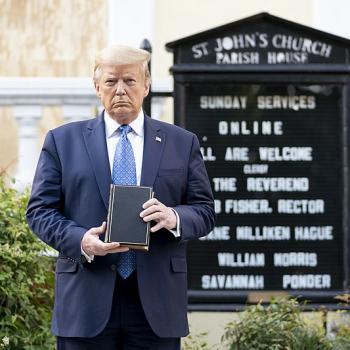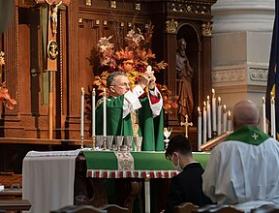“The vote in Massachusetts on doctor-prescribed death will be one of the
most consequential votes in America this November.” National Right to Life
The most important vote you cast next Tuesday may not be when you chose between President Obama and Governor Romney. Your most important vote might very well be quite a bit further down the ballot.
Voters in several states are faced with culture-destroying, life-ending votes on a couple of important issues.
 FIRST, four states have votes on the November ballot which would change the legal status of same-sex marriage within their borders.
FIRST, four states have votes on the November ballot which would change the legal status of same-sex marriage within their borders.
Read these carefully. In some states, you must vote “no” to support traditional marriage. In others, you need to vote “yes.” They are:
Maine: An initiative on the ballot seeks to legalize same-sex marriage. This is the first time a state’s voters have been directly asked to legalize same-sex marriage, rather than prohibit it. Vote “no” to support traditional marriage between one man and one woman.
Maryland: Voters will consider a popular referendum seeking to overturn a new law legalizing same-sex marriage. Vote “yes” to support traditional marriage.
Minnesota: A Minnesota Same-Sex Marriage Amendment, Amendment 1, is a constitutional amendment. The measure would define marriage as between one man and one woman.
Unlike previous, unsuccessful attempts to place a marriage amendment on the ballot, the 2012 measure may leave open the possibility of same-sex civil unions. Vote “yes” to support traditional marriage.
The question, along with the measure’s ballot title, would be presented to voters as follows:
Limiting the status of marriage to opposite sex couples.
“Recognition of Marriage Solely Between One Man and One Woman.”
YES
NO
Washington: Like Maryland, Washington has a popular referendum on the ballot that seeks to overturn a new law legalizing same-sex marriage. Vote “yes” to support traditional marriage.
North Carolina voters approved a same-sex marriage ban in May 2012. The “yes” vote was 61.1%. Done and done!
 SECOND, Massachusetts is facing a critical vote on assisted suicide. The voters of Washington and Oregon have passed similar laws legalizing euthanasia in their states in years past. Euthanasia was legalized in Montana by a court ruling. From what I’ve read, the Catholic state of Massachusetts is teetering on the same brink.
SECOND, Massachusetts is facing a critical vote on assisted suicide. The voters of Washington and Oregon have passed similar laws legalizing euthanasia in their states in years past. Euthanasia was legalized in Montana by a court ruling. From what I’ve read, the Catholic state of Massachusetts is teetering on the same brink.
The Catholic Church, Massachusetts Medical Society, Massachusetts Hospice and Palliative Care Federation, and the American Medical Directors Association all oppose the practice of Physician-Assisted Suicide. The Massachusett Medical Society’s statement in opposition to Question 2 said in part”
The Society’s stand against Question 2, Dr. Aghababian said, is based on the idea that physician-assisted suicide is fundamentally incompatible with the physician’s role as healer. He also said that predicting a person’s end of life within six months, as the ballot question states as a requirement, is difficult, as such predictions can be inaccurate. Many times patients who are expected to die within months have outlived their prognosis, sometimes for years.
I think the line that says that killing their patients is “fundamentally incompatible with the physician’s role as healer” is especially important. Killing your patients certainly is inconsistent with the role of healer. If physicians’ professional societies want patients to continue to trust their doctors, they would do well to remember that. (emphasis mine)
Here are excerpts from a National Right to Life article about this proposed law:
Massachusetts November Referendum
With the effort stymied in Vermont, all eyes turned to the upcoming Massachusetts ballot initiative.
The stakes could not be higher. The pro-euthanasia lobby deliberately targeted Massachusetts for several strategic reasons. They are hopeful that Massachusetts legalization would have a far-reaching influence. Massachusetts is home to the Harvard Medical School, which is currently ranked first among American research medical schools by U.S. News and World Report.
The New England Journal of Medicine, published by the Massachusetts Medical Society, is one of the oldest and most respected medical journals in the world. If doctor-prescribed death were to become standard medical practice in its home state, it might not be long before the notion that suicide is an appropriate response to illness would percolate through medical thought across the nation.
Nearly every proposal to legalize assisting suicide has been modeled on the law in effect in Oregon since 1997. The Oregon experience has exposed major weaknesses in supposed “safeguards.”
The pro-euthanasia lobby often makes the case for doctor-prescribed death as a response to the problem of pain. Even overlooking the troubling notion that it is a satisfactory “solution” to kill the person to whom the problem happens, the experience with Oregon’s law shows how inaccurate the pain argument is.
In Oregon, there have been several almost decade-long studies conducted to determine the motivation of those committing suicide with lethal drugs prescribed in accordance with the law. Shockingly, not one person has requested suicide because he or she was in pain. Instead, the studies show the predominant motive has been fear of becoming a burden. In fact, modern medicine has the ability to control pain—and the real solution is to have physicians and other health care personnel better trained in keeping up with cutting-edge techniques for alleviating pain.
With so much on the line in Massachusetts, can the state afford to legalize this dangerous practice of turning doctors from healers into those who prescribe death to their most vulnerable patients? The vote in Massachusetts on doctor-prescribed death will be one of the most consequential votes in America this November.
If you are a traditional Christian, and you live in one of these states, please don’t just check off the big vote at the top of the ballot and go home. Instead of voting for someone else to fight the culture wars for you, you have an opportunity to directly state your opinion with a vote of your own.
The real action is further down the ballot: Be there, or be square.












